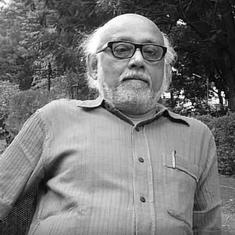Farm laws: Agriculture minister to meet farmers in two days to end their stir, says Amit Shah
Meanwhile, the protestors gave a call for a daylong hunger strike on Monday.

Union Home Minister Amit Shah on Sunday said that Agriculture Minister Narendra Singh Tomar would meet the farmers protesting against the farm laws on Monday or Tuesday to end their stir, reported PTI. Several rounds of talks with farmers’ representatives have failed to break the impasse.
“I am not exactly aware of the timing but Tomar is likely to meet the representatives of farmers tomorrow or the day after to discuss their demands,” Shah said at a press conference.
Meanwhile, the farmers gave a call for a daylong hunger strike on Monday in protest against the three contentious agriculture laws. “Farmers will begin a daylong relay hunger strike on Monday at all sites of protest against the new agri laws,” Swaraj India Chief Yogendra Yadav said at a press conference at the Singhu border. “It will be started by a team of 11 members at protest sites here.”
He also urged people protesting against the laws to observe the hunger strike at their respective protest sites. Bharatiya Kisan Union Rakesh Tikait asked people to skip a meal on Kisan Divas [Farmers’ Day] celebrated on December 23.
Jagjeet Singh Dalewala, another leader of the union, said that they have decided to make the toll plazas in Haryana free from December 25 to December 27, according to ANI. He also urged people to beat their utensils at their homes on December 27, during Prime Minister Narendra Modi’s monthly radio programme “Mann ki Baat”, till the time he speaks.
The farmers’ protest has entered the 25th day. Earlier in the day, farmers held prayer meetings across the country to pay their respects to the protestors who died during the ongoing agitation against the new agricultural law.
Tens of thousands of farmers, mostly from Punjab and Haryana, have been protesting at key entry points to Delhi. The farmers fear the agricultural reforms will weaken the minimum support price mechanism under which the government buys agricultural produce, will lead to the deregulation of crop-pricing, deny them fair remuneration for their produce and leave them at the mercy of corporations.
The government, on the other hand, maintains that the new laws will give farmers more options in selling their produce, lead to better pricing, and free them from unfair monopolies.
The negotiations between farmers’ groups and the Centre has not progressed since the last meeting, scheduled to be held on December 9, was cancelled. Both the government and farmer leaders have reiterated their positions and dialed up the rhetoric, but have made no concrete efforts to resume discussions to resolve the deadlock.









